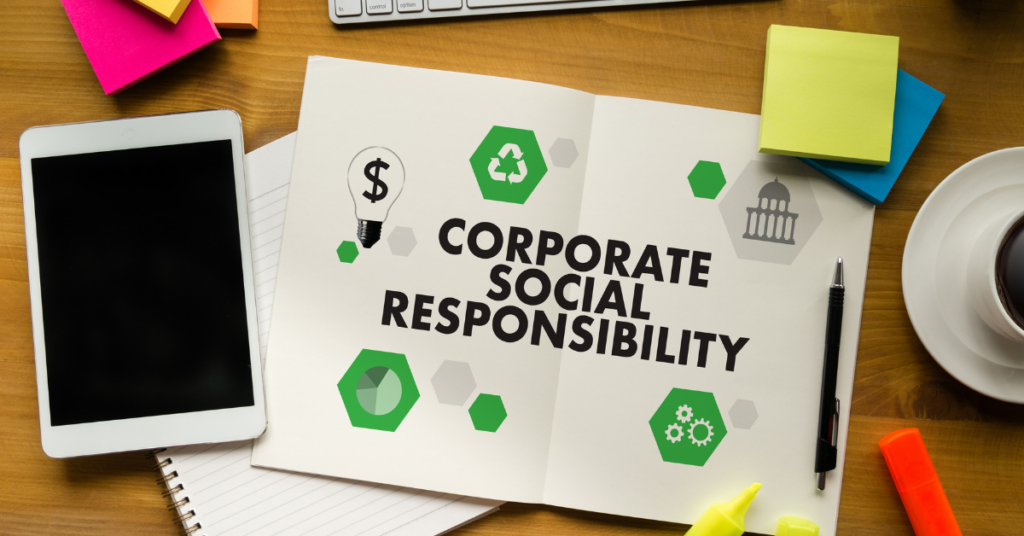In today’s business world, Environmental, Social, and Governance (ESG) factors are no longer optional—they are essential for long-term success. While much attention is often given to the environmental and governance aspects, the social responsibility component of ESG is equally important. Social responsibility encompasses a wide range of issues, including how businesses treat their employees, engage with communities, and uphold ethical labor practices. As societal expectations evolve, businesses are increasingly expected to demonstrate a strong commitment to social responsibility. In this blog, we’ll explore why social responsibility in ESG is more important than ever and how businesses can embrace it.
What is Social Responsibility in ESG?
The social aspect of ESG refers to how a company manages its relationships with its employees, customers, suppliers, and the communities in which it operates. It includes issues such as:
- Diversity, equity, and inclusion (DEI): Ensuring a diverse workforce and promoting equal opportunities for all employees.
- Human rights: Respecting labor rights and ensuring fair wages, safe working conditions, and the eradication of forced or child labor.
- Community engagement: Supporting local communities through charitable contributions, volunteer programs, and economic development.
- Customer relations: Providing safe, high-quality products or services while maintaining strong consumer protection practices.
- Employee well-being: Prioritizing the physical, mental, and emotional health of employees through fair treatment, safe work environments, and comprehensive benefits.
These factors play a critical role in shaping a company’s reputation, employee satisfaction, and long-term viability.
Why is Social Responsibility More Important Than Ever?
Several key trends are driving the growing importance of social responsibility in ESG, making it a critical focus for businesses today.
1. Rising Consumer Expectations
Modern consumers are more conscious about where they spend their money. They expect companies to not only provide great products and services but also operate in a socially responsible manner. Whether it’s ensuring ethical labor practices or promoting diversity and inclusion, businesses that demonstrate a genuine commitment to social responsibility are more likely to gain customer trust and loyalty.
Example: Apparel companies like Patagonia and TOMS have built their brands around social responsibility by supporting environmental causes and giving back to communities, gaining strong customer support as a result.
2. Employee Satisfaction and Retention
Employees today value companies that prioritize their well-being and actively work to create inclusive, supportive environments. Social responsibility initiatives, such as flexible work policies, mental health support, and diversity programs, can significantly boost employee morale, leading to better retention and higher productivity.
Example: Companies like Salesforce have become leaders in social responsibility by championing employee diversity and offering substantial benefits packages that focus on mental and physical well-being. This, in turn, has helped Salesforce build a reputation as an employer of choice.
3. Investor Interest and Pressure
Investors are increasingly considering ESG factors when making decisions, and social responsibility is becoming a major focus. Companies that fail to uphold social standards—such as addressing workplace discrimination or unsafe labor conditions—risk losing investor confidence and facing divestment.
Many institutional investors now demand that companies not only adhere to social responsibility standards but also provide transparent reporting on their progress. As a result, businesses are under more pressure than ever to ensure that their social practices meet stakeholder expectations.
4. Regulatory Requirements
Governments and regulatory bodies worldwide are beginning to introduce laws and guidelines that hold companies accountable for their social impact. For example, laws around mandatory human rights due diligence are becoming more common, especially in Europe. These regulations require companies to ensure that their supply chains are free from labor abuses, including child labor, forced labor, and unsafe working conditions.
By proactively addressing these issues, businesses can avoid legal risks, penalties, and reputational damage.
5. Social Media Amplification
The rise of social media has given consumers and activists a powerful platform to hold businesses accountable for their actions. A company’s failure to act responsibly can quickly lead to public backlash and boycotts. On the other hand, businesses that proactively communicate their social responsibility efforts can benefit from positive brand recognition and stronger customer engagement.
Example: Nike’s support for social justice movements, such as its backing of athlete-activist Colin Kaepernick, sparked widespread conversations online and earned the brand significant attention—both positive and negative—but it underscored Nike’s commitment to social responsibility.
Key Areas of Social Responsibility
To effectively embrace social responsibility, businesses need to focus on the following key areas:
1. Diversity, Equity, and Inclusion (DEI)
Promoting a diverse and inclusive workplace is critical in today’s socially conscious environment. Companies that prioritize DEI are more likely to attract top talent, foster innovation, and reflect the diversity of their customer base.
- Promote diversity in hiring: Implementing policies that prioritize diversity in hiring and leadership positions ensures that companies benefit from a wide range of perspectives.
- Support equitable pay: Conducting pay audits and ensuring equal pay for equal work helps reduce income disparities based on gender, race, or other factors.
2. Human Rights and Ethical Labor Practices
Upholding human rights, both within a company and across its supply chain, is essential to maintaining social responsibility. This includes ensuring safe working conditions, fair wages, and the eradication of exploitative labor practices.
- Conduct supply chain audits: Regularly auditing suppliers for compliance with labor laws and ethical standards helps ensure that human rights are respected.
- Commit to fair trade: Supporting fair trade products and practices demonstrates a commitment to ethical labor practices and sustainable development.
3. Employee Well-Being
Employee well-being is not just about wages and benefits—it also includes mental health support, work-life balance, and a positive work culture.
- Offer mental health resources: Providing access to mental health programs and employee assistance initiatives helps employees manage stress and maintain a healthy work-life balance.
- Promote work-life balance: Flexible working hours, remote work options, and generous parental leave policies can improve employee satisfaction and productivity.
4. Community Engagement
Supporting local communities through charitable giving, volunteering, and economic development initiatives helps businesses build stronger relationships with the communities in which they operate.
- Invest in community programs: Sponsoring local events, contributing to charitable organizations, and providing job opportunities for underserved populations can strengthen ties to the community.
- Encourage employee volunteering: Offering paid volunteer days or matching employee donations to charitable causes fosters a culture of giving back.
5. Customer Relations and Product Responsibility
Social responsibility also extends to the products or services that a company offers. Providing safe, high-quality goods and being transparent about business practices is crucial for building trust with customers.
- Prioritize customer safety: Ensuring that products meet safety standards and are produced ethically builds customer confidence.
- Be transparent: Transparency about sourcing, production, and social impact helps customers make informed choices and fosters trust.
How Businesses Can Implement Social Responsibility into Their ESG Strategy
For businesses looking to strengthen their social responsibility efforts, the following steps can be taken:
1. Conduct a Social Impact Assessment
Assess the company’s current impact on key social factors such as labor practices, diversity, and community engagement. This will provide a baseline to identify areas for improvement.
2. Set Clear Social Goals
Based on the assessment, businesses should set measurable goals for improving their social impact. These could include increasing diversity in leadership roles, improving employee retention, or enhancing community involvement.
3. Report Progress Transparently
Regularly reporting on social responsibility initiatives, progress, and outcomes is critical for building trust with stakeholders. Many companies include social metrics in their ESG reports or annual sustainability reports.
4. Engage Employees and Stakeholders
Involving employees in social responsibility programs ensures greater buy-in and success. Businesses should also collaborate with suppliers, customers, and communities to create a comprehensive social responsibility strategy.
Conclusion
In the evolving world of ESG, social responsibility has never been more important. Consumers, employees, investors, and regulators are all demanding that businesses not only prioritize profit but also make a positive social impact. By addressing critical issues like diversity, human rights, employee well-being, and community engagement, businesses can build a more sustainable future while enhancing their reputation and profitability.
As the pressure to act responsibly continues to grow, companies that embrace social responsibility will not only stay ahead of the curve but also create lasting value for their stakeholders and society as a whole.


